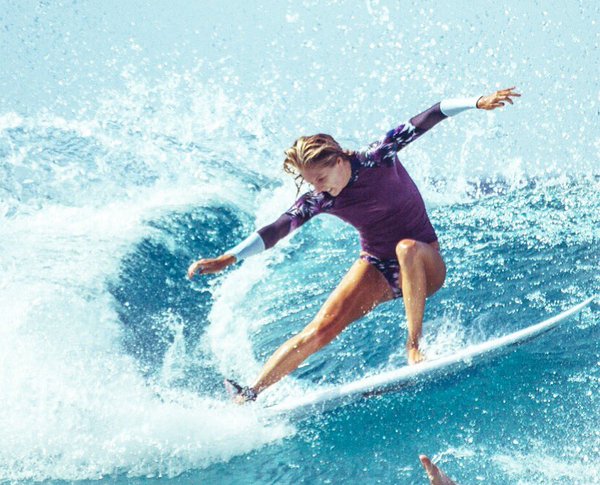The First Three Surfing Carves
When I teach Surf Lessons in Oceanside USA, students learn how to progress from riding straight to the beach to carves in surfing. The ability to ride balanced on the board sets up the ability to carve right or left on demand. When students develop technique that isn’t correct, they can often only turn in one direction or not at all.

Three Carves in Surfing
The first turn one learns after riding the face of real waves is to make bottom turns into the pocket. A regular footed (left foot forward) rider places pressure on his toes and rotates his upper body to the right for a face side carve (turn). He places pressure on his heels and rotates left for a back side carve.
Once the surfer is driving the pocket on a long or short board, he will want to reverse his direction for both practicality and style. When the power of the wave in the pocket starts to die, you want to reverse toward the falling lip to regain the power. A cut back is executed by a reverse rotation of the upper body beginning with the eyes, head, shoulders, arms and hands in a solid move torquing the hips, legs, feet, and finally the board. Speed facilitates the turn which is why all short boards accelerate (unweight) in the pocket.
Ripping the Lip
The third carve in surfing is up the face of the wave either front side or back side. One purpose is to perform a trick and the other is to escape a closing wave. Riding up the face is a bottom turn. Most surfers like to get a low center of gravity by dragging the inside hand in the water and then arcing just as you would coming down the face of the wave.
If you are ripping the lip, you will reverse your rotation just like a cut back.
Learn about surf lessons on Home Page
Download my 17 page Surf Guide It covers your basic fundamentals and techniques. $1.